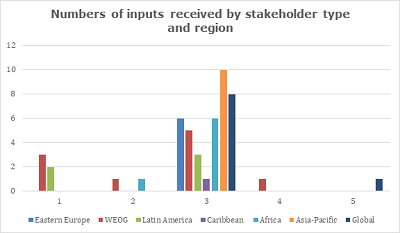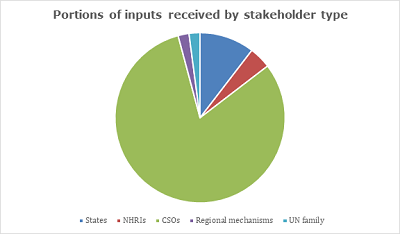Report on Legal Recognition of Gender Identity and Depathologization
Issued by
Independent Expert on sexual orientation and gender identity
Published
12 July 2018
Issued by
Independent Expert on sexual orientation and gender identity
Published
12 July 2018
Issued by Special Procedures
Subject
Sexual orientation and gender identity
Symbol Number
A/73/152
Summary
English:
In June 2017, Independent Expert Vitit Muntarbhorn presented his inaugural report to the Human Rights Council titled “diversity in humanity, humanity in diversity” (A/HRC/35/36). In it, he identifies six underpinnings for the mandate on protection from violence and discrimination based on sexual orientation and gender identity:
The Independent Expert elaborates on the first two underpinnings in his 2017 report to the UN General Assembly (A/72/172). The title of the report is “Embrace diversity and energize humanity”.
His successor analyses the third and fourth underpinnings in the present report, presented to the General Assembly in October 2018.
Watch the interactive dialogue at the General Assembly
The Independent Expert examines the process of abandoning the classification of certain forms of gender as “pathologies”. He clarifies the duty that State have to respect, and promote respect of gender recognition as a component of identity. He also highlights some effective measures to ensure respect of gender identity, and provides guidance to States on how to address violence and discrimination based on gender identity.
Watch the press briefing of the report, 28 October 2018.
Read the press release.
Open consultation (2018)
The Independent Expert held a consultation on 19 June 2018 in Geneva to exchange views with participants on the scope of legal recognition of gender identity, and destigmatization linked with depathologization.
The following points were discussed:
Participants also explored good practices and gaps at international, regional and national levels on the two topics of the consultation. Moreover, this platform of dialogue facilitated the exchange of experiences, knowledge, and lessons learned among participants.
See the background note (English | Français | Español)
The mandate held consultations on the overall objective of the mandate on 24 and 25 January 2017 in Geneva, and sent a questionnaire in May 2017 requesting inputs regarding the six underpinnings mentioned above, with particular focus on the following areas:
Through these means, the Independent expert received the input of over a hundred stakeholders. He took these into consideration when elaborating the present report.


VIEW THIS PAGE IN: